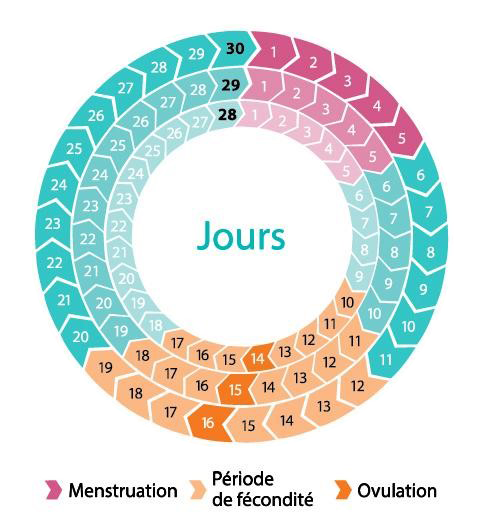Sexuality and the body
Puberty is an important period of transition, both physical and psychological. During this phase, the body begins to produce sex hormones, triggering bodily and emotional changes. Although puberty generally begins in adolescence, the age at which it occurs can vary from person to person.
This stage of life can give rise to many questions and challenges. It’s also a time when tastes, needs and emotions evolve. In fact, puberty can cause mood swings, sometimes intense, for no apparent reason, which is perfectly normal and temporary.
It’s also possible that the body is evolving faster than psychological maturity, or vice versa. If you have any concerns or questions, it’s important to discuss them with someone you trust, or a healthcare professional, who can support you during this period of transformation.

The menstrual cycle begins with the first day of menstruation and ends just before the next period. It generally lasts from 28 to 32 days, but this can vary. Around 14 days before the next cycle, the ovaries release an egg, which then travels through a fallopian tube towards the uterus.
If the egg is fertilized by a sperm in the Fallopian tube, it implants in the uterus, where it begins to develop into an embryo, and then a fetus. If the egg is not fertilized, it is expelled from the body during menstruation.
The fertile period extends from 5 days before ovulation to 2 days afterwards. Sperm can live up to 5 days in the uterus, while the egg lasts 24 to 48 hours.
During sexual arousal, the penis fills with blood and stiffens. During ejaculation, up to 500 million spermatozoa are expelled at an average speed of 45 km/hour. If pregnancy occurs, a sperm fertilizes the egg, which implants in the uterus and develops.
Anatomical descriptions may vary from person to person. Feel free to use terms you’re comfortable with when talking to a‧e healthcare professional‧le.
If you’re intersex, you may have a different combination of organs.
Sexuality encompasses much more than the reproductive organs. It’s about pleasure and well-being, and can involve the whole body. The brain, through thoughts and fantasies, plays a major role in arousal. Similarly, the skin, with its varied erogenous zones (breasts, nipples, nape of the neck, thighs, etc.), can be a source of pleasure.
Orgasm is an intense release of sensations from the sexual organs to the whole body. Many factors, such as the duration of the act, emotions or the context of the relationship, influence the perception of pleasure.
Beyond the body, sexuality involves emotions and interactions. Open communication, respect for boundaries, clear consent and a safe environment all contribute to a positive experience.